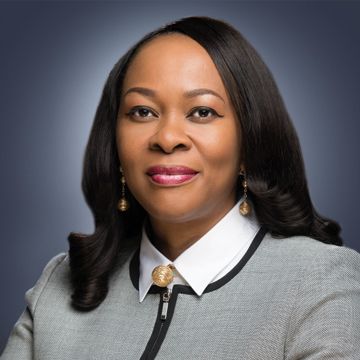Financial Expert Oghogho Osula has called for more private sector participation in the provision of financial services to the unbanked as it will go a long way for businesses in the sector if they have access to such financial services.

She made the call during a presentation recently to journalists at the Nigerian Stock Exchange in Lagos.
In her presentation, she explained that the National Financial Inclusion Strategy was introduced in 2012 by the federal government with a view to reducing the number of Nigerians without access to financial services from 46.3 per cent to 20 per cent by 2020. NFIS was promoted as a key driver for the Nation;s economy to becoming one of the world’s largest in the world.
According to her, these developments indeed present an exciting opportunity for the unbanked and underbanked, especially, to participate in the financial system.
‘’Despite being Africa’s largest economy, only 30 per cent of Nigerian adults have an account at a formal banking institution. Currently, more women are excluded than men are, with about 73 per cent of them holding no account.
The lives of the unbanked could be improved through access to basic banking services such as deposits, savings, instalment loans and secure remittances’’.
Osula explained that financial inclusion means helping a greater number of people secure relevant and good quality financial products, which are appropriate, affordable and convenient for the entire adult population, especially the most excluded, the poor, less privileged, and women.
‘’Financial products like savings, investments, credit, insurance, payments and pensions for the entire adult population, especially the low-income segment and women are products captured under the financial inclusion programme”.
An inclusive financial sector is characterized by the diversity of financial services, the legal and regulatory environments that ensure the integrity of the financial sector and access to financial services for all’’.
She explained that Financial Inclusion has been identified as one of the key drivers of development in the largest economies as evidence worldwide shows that access to financial services contributes both to economic growth and wealth creation.
She urged regulators and policy makers to create an enabling policy environment to actively promote both the demand for and the supply of financial services to the unbanked and under-banked.
According to Osula, a survey conducted by EFINA recently indicated that when compared to other countries in Sub Saharan Africa, Nigeria has one of the lowest penetrations in mobile money. So, despite the fact that Nigeria has one of the highest banked population (38.3%), the percentage of financially excluded is the highest at 41.6%.
The survey also showed that 53.5% of the 18 to 25 age-bracket are excluded financially. The highest level of formally included are in the 36 to 45 age bracket. And that Banking services are not getting to rural areas however, formal other and informal services are reaching rural areas.
It was also discovered for the first time since the survey in 2008, that the geo-political zone with the highest proportion of financially excluded adults is the North-West Nigeria, as financial access is skewed towards male adults. Adult men are more likely to be banked than adult women.
Adult women tend to use more formal and informal financial services than adult men. Mrs. Osula further explained that EFInA Access to Financial Services in Nigeria 2012 survey revealed that 23.0 million adults save at home.
And as such if 50.0% of these people were to save N1,000 per month with a bank, then up to N138 billion could be incorporated into the formal financial sector every year”.














